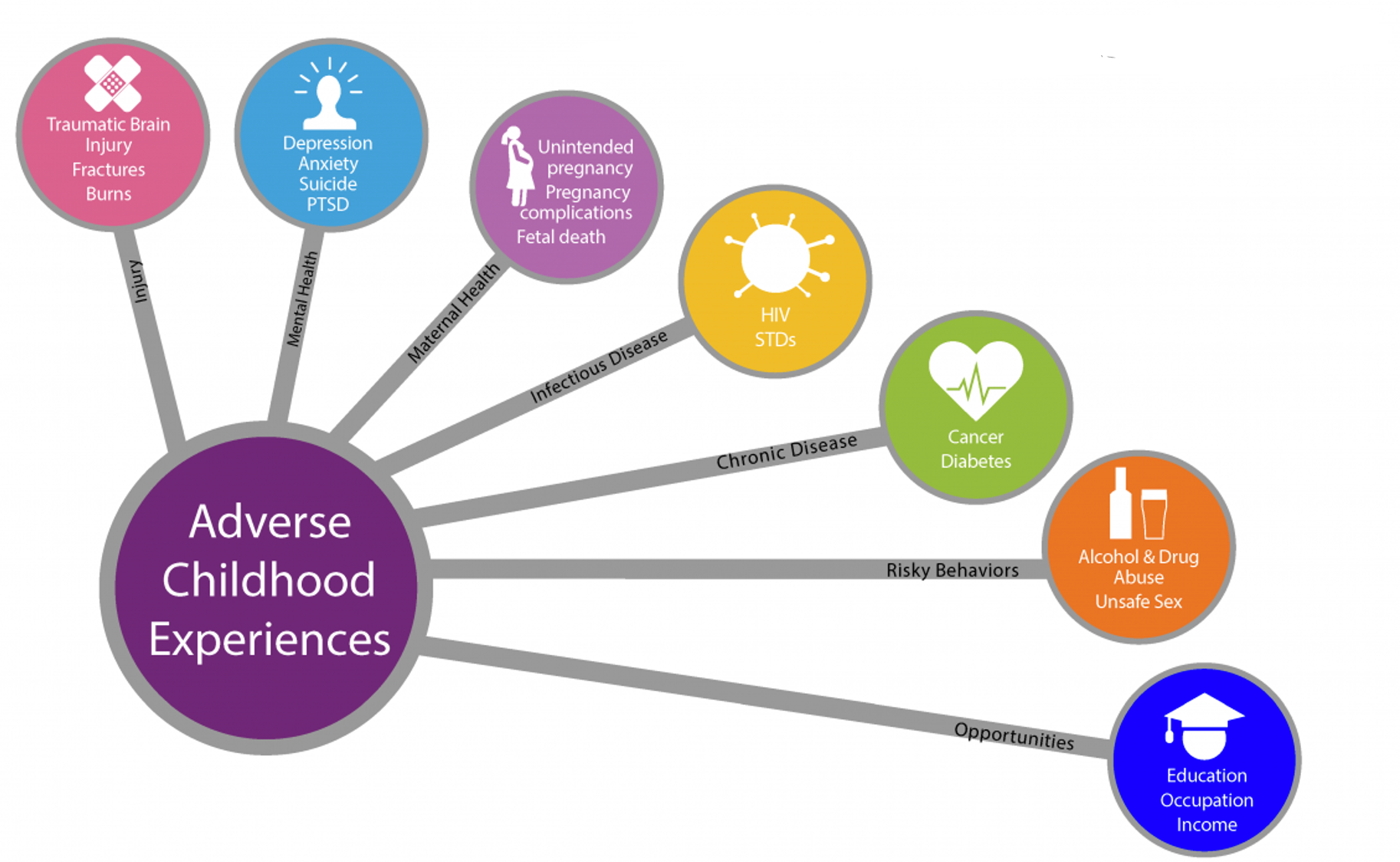Question
What are the consequences and lasting impacts of Adverse Childhood Experiences (ACEs)?
Answer
Consequences
- Lasting, negative effects on health, well-being, and opportunity
- Experiences are associated with increased risks of:
- Injury
- STD
- Maternal and Child Health Problems
- Teen Pregnancy
- Involvement in Sex Trafficking
- Chronic Disease
What are the consequences? We have established that a good percentage of the population has had ACEs, and there are negative effects on health, wellbeing, and opportunity. There are some listed, but let's look at this next one because this next slide really does a better job of really identifying and kind of giving us some details.
Lasting Impacts
What are the lasting impacts?

Figure 1. Early adversity has lasting impacts.
The first one we will talk about is Injury. You may automatically think that this is secondary to abuse. However, it may or may not be abuse. It may be just a lack of supervision. We are talking about everything from traumatic brain injuries from abuse, fractures, burns to even possible injuries from having no real supervision.
We also see mental health issues. We have already talked about depression. There are 21 million cases of depression associated with Adverse Childhood Experiences. As a result of that, we see increased anxiety, suicide, and PTSD.
The next one is maternal health. A lot of early sexual activity is associated with what is happening in the home. There can be unintended pregnancy and possible complications due to the mother's age and no good prenatal care.
There can be infectious disease issues such as STDs and HIV.
For chronic disease, we may see cancer and diabetes.
Risky behaviors include addiction, which I am going to go over in more detail in a second. Risky behaviors also include alcohol and drug abuse and unsafe sex secondary to childhood experiences.
The last one is opportunities. Sometimes I feel like it is overlooked, although it is a big piece of the puzzle. These are education, occupation, and income. I teach a global health class, and we actually have an entire section on poverty and the poverty cycle. There is always much discussion with our college freshmen about whether or not poverty perpetuates itself. The reality is that poverty begets more poverty. Oftentimes, these individuals living in households without proper support, great parental roles, or adequate income do not have the same opportunities in education, jobs, and income.
This Ask the Expert is an edited excerpt from the course, Revisiting Adverse Childhood Experiences: Is This the Key to Managing COPD, presented by Tammy Kurszewski, D.H.Sc., RRT-ACCS.
